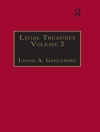Shakespeare’s Macbeth is one of the greatest tragic dramas the world has known. Macbeth himself, a brave warrior, is fatally impelled by supernatural forces, by his proud wife, and by his own burgeoning ambition.
The play is set in Scotland. Returning from battle with his companion Banquo, the nobleman Macbeth meets a group of witches. They predict that Macbeth will first become thane (baron) of Cawdor and then king of Scotland. Urged on by Lady Macbeth, his wife, Macbeth murders King Duncan. But Duncan’s sons, Malcolm and Donalbain, escape. Macbeth then seizes the throne of Scotland. But Macbeth has no peace. In a bid to prevent Banquo’s descendants from becoming kings according to the witches‘ prophecy, Macbeth arranges for him to be murdered, along with his son Fleance. Macbeth’s men kill Banquo, but Fleance escapes. Haunted by Banquo’s ghost, Macbeth seeks counsel from the witches. They tell him to beware of Macduff, another Scottish nobleman. Macbeth is now hardened to killing. He orders the murder of Macduff’s wife and children. By contrast, Lady Macbeth, who had encouraged her husband to embark upon his path of slaughter, goes mad with guilt and dies. Macduff’s army attacks Macbeth’s forces. Macduff meets Macbeth in single combat and kills him. Malcolm, Duncan’s son, is then proclaimed king of Scotland.
ABOUT THE AUTHOR:
William Shakespeare (baptised 26 April 1564) was an English poet and playwright, widely regarded as the greatest writer in the English language and the world’s pre-eminent dramatist. He is often called England’s national poet and the ‚Bard of Avon‘ (or simply ‚The Bard‘). His surviving works consist of 37 plays, 154 sonnets, two long narrative poems, and several other poems. His plays have been translated into every major living language.
Shakespeare was born and raised in Stratford-upon-Avon. Scholars believe that he died on his fifty-second birthday, coinciding with St George’s Day. At the age of 18 he married Anne Hathaway, who bore him three children: Susanna, twins Hamnet and Judith. Between 1585 and 1592 he began a successful career in London as an actor, writer, and part owner of the playing company the Lord Chamberlain’s Men, later known as the King’s Men. He appears to have retired to Stratford around 1613, where he died three years later.
Shakespeare produced most of his known work between 1590 and 1613. His early plays were mainly comedies and histories, genres he raised to the peak of sophistication and artistry by the end of the sixteenth century. Next he wrote mainly tragedies until about 1608. He was a respected poet and playwright in his own day, but his reputation did not rise to its present heights until the nineteenth century. The Romantics, in particular, acclaimed Shakespeare’s genius, and the Victorians hero-worshipped Shakespeare. In the twentieth century, his work was repeatedly adopted and rediscovered by new movements in scholarship and performance. His plays remain highly popular today and are consistently performed and reinterpreted in diverse cultural and political contexts throughout the world.












